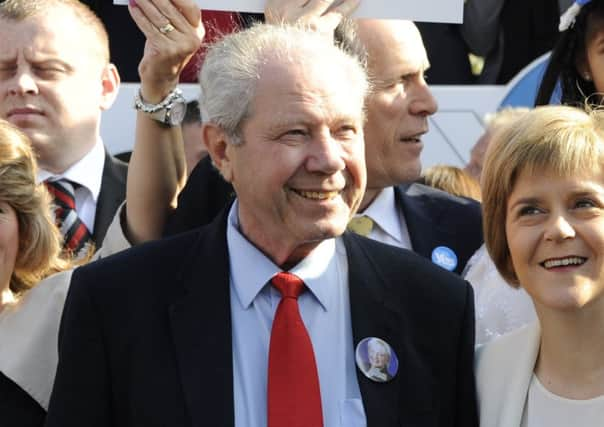EU referendum: NHS '˜may no longer be free' if UK stays in EU


The fears stem from a controversial trade deal between the EU and US which it is suggested could see the NHS as well as other public services like Scottish Water opened up to privatisation.
Scots Leave campaigners spelled out the impact of the Transatlantic Trade and Investment Partnership (TTIP) which it claims could open up public services to market bidding. This could mean “hotel” charges in hospital and fees for GP appointments.
Advertisement
Hide AdAdvertisement
Hide AdFormer SNP deputy leader Jim Sillars said: “You’ve got to think down the road.
“After privatisation has become an accepted factor then it’s much easier for the private practitioners to argue that free at the point of use is no longer applicable and that certain charges should be brought in.
“Already in the discussions south of the Border, they’ve been talking about charging for a GP appointment, for example.
“There have been arguments down there for hotel charges if you go to hospital - that is your bed and food.
“So once privatisation is into a public service then you find that the service is levered open to further privatisation.”
Tom Burns of the Aslef union said: “In rural areas of Scotland, Wales and Cumbria - sparsely populated areas - the free at the point of use principle will be eroded and smart lawyers will be going to court and saying ‘It’s not reasonable to expect us to provide free at the point of use to everyone’.
“You will have a percentage threshold being established which will be absolutely fine for the people in the central belt but not so clever for the people in the Highlands and Islands. They will say 95 per cent are covered by this and that’s fine.”